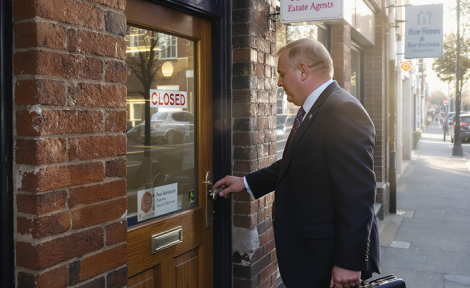New amendment to renting reforms will see more ‘unannounced visits’
Commentator argues new changes to Renters' Rights Bill will open up properties to greater number of visits and fines for landlords.

A private rented sector figure has warned that a recently-added amendment to the Renters’ Rights Bill will see landlords and agents increasingly ‘surprised’ by unannounced council enforcement officers.
 While aimed at ensuring compliance with housing regulations, Phil Turtle of Landlord Licence and Defence (pictured) has warned the amendment, if it is included in the final legislation, could lead to increased targeting of landlords and hefty fines for minor infractions.
While aimed at ensuring compliance with housing regulations, Phil Turtle of Landlord Licence and Defence (pictured) has warned the amendment, if it is included in the final legislation, could lead to increased targeting of landlords and hefty fines for minor infractions.
The extra powers have been added by the Government and are therefore likely to become law when the Bill gets Royal Assent later this year.
Housing, Communities and Local Government parliamentary under-secretary Baroness Taylor of Stevenage, who added the amendment, told peers that “local authorities have told us that providing notice can result in unscrupulous landlords hiding evidence of breaches, intimidating tenants, and temporarily fixing issues before reverting to non-compliance”.
Therefore, the amendment gives local councils the power to conduct surprise inspections on private rented properties without giving notice to landlords.
Alarm
Turtle says this shift has raised the alarm among landlord law experts who argue that councils already exploit existing powers to conduct unannounced visits.
“Councils have been carrying out surprise inspections for years, often under the flimsiest of pretexts,” he says.
“They claim suspicion of unlicensed properties or breaches of regulations to justify unannounced visits, sometimes arriving at 5am with eight officers dressed in uniforms resembling those of the police.
“These tactics are designed to intimidate tenants, and the Renters’ Rights Bill only legitimises this behaviour, giving councils even more scope to target landlords.”
Turtle highlights that current laws, including the Housing Act 2004 and the Town and Country Planning Act 1990, already allow councils to enter properties without notice in cases of suspected offences.
“It’s a system ripe for abuse, with officers acting like bullies to extract fines.”
Council officers frequently use these powers to ‘catch out’ landlords for minor issues, such as incomplete paperwork, which, under the Bill, can result in fines of up to £40,000, he says.
“This has little to do with tackling rogue landlords,” he adds. “Councils use these powers daily to penalise landlords who may not have everything 100% perfect.
“It’s a system ripe for abuse, with officers acting like bullies to extract fines.”










